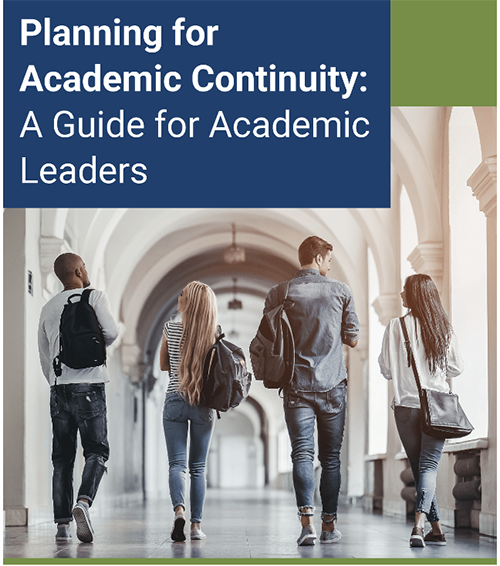Campus News
UC Santa Cruz guides the way in new report on academic continuity
UC Santa Cruz is heralded for its commitment to academic continuity in times of disruption in a new report titled Planning for Academic Continuity by Every Learner Everywhere.

UC Santa Cruz is heralded for its commitment to academic continuity in times of disruption in a new report titled Planning for Academic Continuity by Every Learner Everywhere.
The organization reviewed academic continuity planning at more than 100 colleges and universities across the country – public and private four-year and public two-year institutions. The report aims to provide best practices, resources and templates for developing a general use plan during short- and long-term disruptions.
While many campuses quickly created plans for the first time during COVID-19 when in-person instruction was suspended, UCSC already had experience implementing alternative teaching modalities due to labor strikes. That was the first of a series of disruptions over the following three-plus years.
“It was strike, COVID, fire, strike, floods, and power outages,” said Associate Campus Provost for Academic Success Jody Greene told Every Learner Everywhere. “We’ve basically had everything.”
In response to the disruptions – expected and unexpected – UCSC has developed an infrastructure and library of resources that center inclusivity, access and flexibility to ensure teaching and learning can seamlessly continue.
Staff at the Teaching and Learning Center, formerly The Center for Innovations in Teaching and Learning (CITL) and Online Education (OE), guide faculty in enhancing learning through technology when they design their in-person, online, or hybrid courses.
“We have a whole library of alternative ways to offer your class to people who cannot get there in person,” Greene said.
Assistant Vice Provost for Educational Innovation Michael Tassio says the planning distinguishes between emergency remote instruction and online learning. Effective course design is always the focus.
“Our online courses have a great deal of attention put into the design. In an emergency, we put our care and attention into designing courses to have more flexibility, because some students don’t have power, they are unable to connect to the internet, or they can’t access campus. There are a variety of reasons more flexibility is needed in response to emergencies.”
Because disruptions impact everyone across UCSC’s residential and remote campuses, Greene and Tassio say it’s vital to include a wide range of people in the decision-making process.
“Make sure that you include your staff and faculty in your compassion-based planning,” Greene shared. “Compassion often ends with the students, and that’s not going to serve sustainability going forward.”